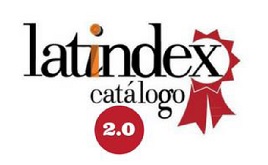The audit approach in the environment of the digital age and artificial intelligence
DOI:
https://doi.org/10.53641/junta.v3i2.54Keywords:
Digital, virtual and remote audit, digital transformation, artificial intelligence, forensic anti-fraud and anti-corruption audit, risk and crisis management, compliance, criminal behaviourAbstract
This work is developed within the scope of the Topic: "Modern approach to auditing and its role in the prevention of fraud and corruption", sub topic "The focus of Auditing in the environment of the digital age and artificial intelligence”.
It is a contribution of special interest and is relevant because it identifies the elements necessary to specify the role of the Public Accountant in his role as Auditor who faces the challenge of focusing the audit in the environment of the digital age and artificial intelligence; in the current COVID-19 crisis and pandemic scenario.
When thinking of an auditor, an image of the professional is kept immersed in a sea of papers documenting his work. That view is out of date; The auditor's paradigm has come to change its image in recent decades, proposing a new model, where the auditor professional is a person with critical thinking, who takes advantage of cutting-edge technology and innovative ideas, generating a change based on the new The digital era and the rise of artificial intelligence characterized by actions based on technological innovation, social norms and paradigm shifts.
Downloads
References
American Accounting Association [AAS]. (1972). Concepción de la auditoria.
Asimov, Isaac (1989). «Círculo vicioso». Los robots. trad. Domingo Santos. Barcelona: Martínez Roca. ISBN 84-270-0906-2.
Buchholz, S. & B. Rosenthal. (2002). Responsabilidad Social y Ética en los Negocios. Respon-sabilidad Social y Ética en los Negocios. En Frederick R. E. (Coordinador), La ética en los negocios. México D.F.: Oxford University Press de México
Contraloría General (2019). Detecciòn de la Corrupciòn; Herramientas. Lima: Conferencia Anual Internacional por la Integridad - CAII.
Craglia et al. (2018). Artificial Intelligence. A European Perspective. Ispra: European Commission, Joint Research Centre.
Domínguez Castillo, I.J. (s/a). Cómo implementar la Inteligencia Artificial en Auditoría MBA, CAC, LBF. Contaduría Pública.
Drucker, P. (1997). Managing in a Time of Great Change. Nueva York: Routledge.
Gurovich, L.I. (año). Informe N° 14 Área Auditoría, Consideraciones de Fraude y del Error en una Auditoría de Estados Contables. Buenos Aires: Federación Argentina de Consejo Profesionales de Ciencias Ecónomicas (FACCE), Centro de Estudios Científicos y Técnicos (CECyT).
Federación Internacional de Contadores [IFAC]. (1983). Guía internacional de auditoría No. 3. Nueva York: Federación Internacional de Contadores (IFAC).
Federación Internacional de Contadores [IFAC]. (2019). COVID deja claro por qué necesitamos mejorar los informes corporativos.
García, M. (2019). Inteligencia Artificial: su regulación y desafíos legales. Cuaderno N° 42 Septiembre 2019.
IBM (s.f ). Las empresas tradicionales contraatacan.
Grupo ATICO34. (2020). La ética empresarial y sus componentes principales. Grupo ATICO34.
ISSN 2310-7987. Norma ISO (2019).
Instituto de Auditores Internos de Costa Rica [IAI]. (2018). Boletín informativo (Asociación Institu-to de Auditores Internos de Costa Rica), 27.
Instituto de Auditores Internos de Ecuador. (2017). Boletín informativo. Tone at the top. Edición 85.
Kant, I. (1879). Fundamental Principles of the Metaphysic of Morals. New York: Abbott
Kell, W.G. (1995). Auditoría moderna. México: C.E.C.S.A.
Litzenberg, R. & Ramírez C.F. (2020). Auditoría Remota para COVID-19 y demás. Implicaciones a corto y largo plazo. Florida: FLAI - Federación Latinoamericana de Auditoría Interna.
Madruga, A. Inteligencia Artificial, el futuro del hombre. Seattle: KDP Print US
Marín Garcia. (2019). Ética e inteligencia artificial. Cuaderno no 42. Navarra: Cátedra CaixaBank de Responsabilidad Social Corporativa – IESE.
Márquez Arcila, R.H. (2018). Auditoría Forense. Instituto Mexicano de Contadores Públicos, febrero.
Masip Rodó, D. (2013). Inteligencia artificial avanzada. Cataluña: Editorial UOC.
Morán, M. (2020) “La Auditoría y su importancia en la detección del fraude”. Trabajo de investigación, XXIII Congreso Nacional de Contadores Públicos del Perú.
Normas Internacionales de Contabilidad [NIC]. IASC – International Accounting Standards Committee (1973-2001).
NP 37001. Instituto Nacional de Calidad (INACAL), organismo público adscrito al Ministerio de la Producción) (2017).
Schwab, K. La cuarta revolución industrial. s/c: Penguin Random Grupo Editorial.
The Institute of Internal Auditors [IIA]. (2004). Marco para la Práctica Profesional Fundación de Investigaciones del IIA.
Downloads
Published
How to Cite
Issue
Section
License
Copyright (c) 2021 Mario Morán Vilcherrez

This work is licensed under a Creative Commons Attribution 4.0 International License.








